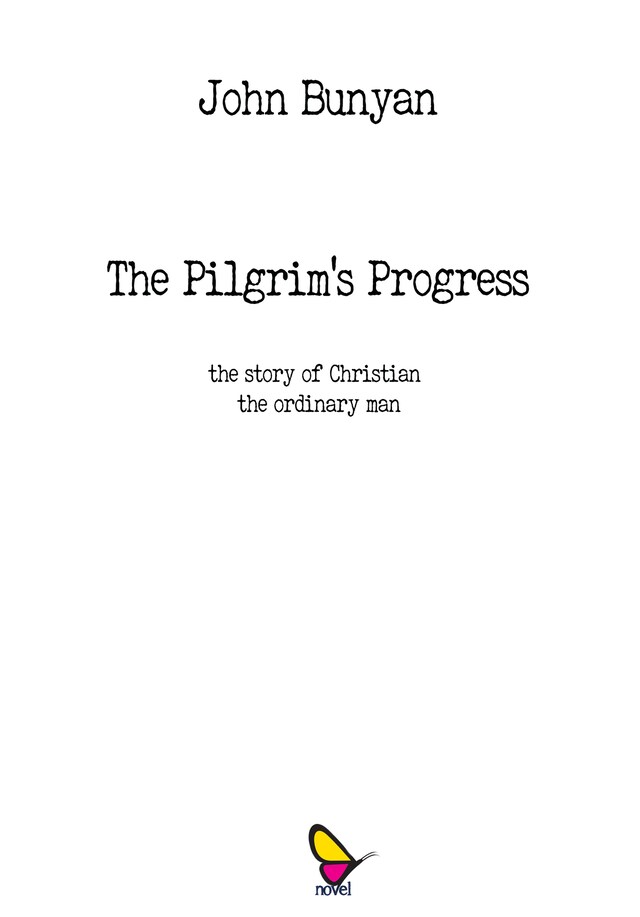
The Pilgrim's Progress
Om bogen
The entire book is presented as a dream sequence narrated by an omniscient narrator. The allegory's protagonist, Christian, is an everyman character, and the plot centres on his journey from his hometown, the "City of Destruction" ("this world"), to the "Celestial City" ("that which is to come": Heaven) atop Mount Zion. Christian is weighed down by a great burden—the knowledge of his sin—which he believed came from his reading "the book in his hand" (the Bible). This burden, which would cause him to sink into Hell, is so unbearable that Christian must seek deliverance. He meets Evangelist as he is walking out in the fields, who directs him to the "Wicket Gate" for deliverance. Since Christian cannot see the "Wicket Gate" in the distance, Evangelist directs him to go to a "shining light," which Christian thinks he sees.[11] Christian leaves his home, his wife, and children to save himself: he cannot persuade them to accompany him. Obstinate and Pliable go after Christian to bring him back, but Christian refuses. Obstinate returns disgusted, but Pliable is persuaded to go with Christian, hoping to take advantage of the Paradise that Christian claims lies at the end of his journey. Pliable's journey with Christian is cut short when the two of them fall into the Slough of Despond, a boggy mire-like swamp where pilgrims' doubts, fears, temptations, lusts, shames, guilts, and sins of their present condition of being a sinner are used to sink them into the mud of the swamp. It is there in that bog where Pliable abandons Christian after getting himself out. After struggling to the other side of the slough, Christian is pulled out by Help, who has heard his cries and tells him the swamp is made out of the decadence, scum, and filth of sin, but the ground is good at the narrow Wicket Gate.
 John Bunyan
John Bunyan 296 Sider
296 Sider